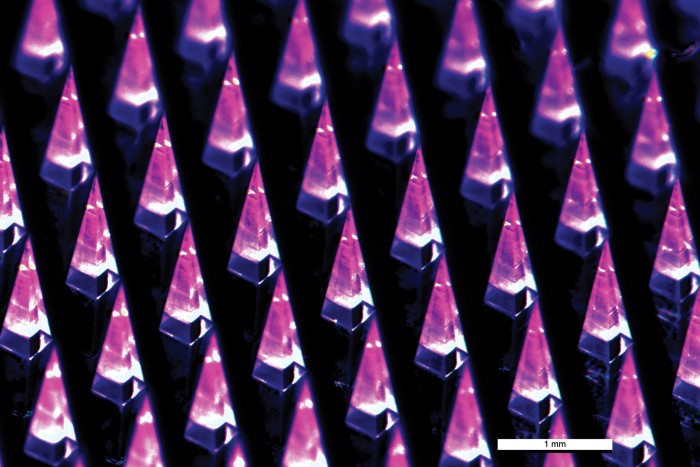China charges ahead in electric car battle
This article is an on-site version of our Disrupted Times newsletter. Sign up here to receive the newsletter directly to your inbox three times a week
Today’s best news
-
UK competition regulator blocked $75 billion takeover of Microsoft Obligations Activision maker Blizzard in a potentially fatal blow to the biggest deal in the software giant’s history.
-
Chinese President Xi Jinping spoke by phone with Ukrainian President Volodymyr Zelenskyy, the first conversation between the leaders since Russia’s invasion of Ukraine. Zelenskyy described the call as “long and meaningful.”
-
US regulators and financiers rushed to stabilize First Republic bank after it revealed that customers had withdrawn $100 billion of deposits during banking turmoil last month.
For up-to-date news updates, visit our live blog
Good night.
One in five cars sold this year will be electric, and those vehicles are increasingly likely to be Chinese.
Global sales by 2023, including hybrid and battery-only models, appear to top 14 million, according to today’s projections from the International Energy Agency. The market has been boosted by initiatives to decarbonise the car market, such as the EU’s plan to ban the sale of all combustion models by 2035.
The IEA now projects that 35 percent of global car sales will be electric by 2030, compared with a forecast of just 25 percent a year ago.
China accounted for nearly two-thirds of all electric car sales in 2022, thanks to subsidies, with Europe and the US, also offering incentives, the second and third-biggest markets.
Brian Gu, vice president of Guangzhou-based XPeng, told the FT this week that intense global competition meant the global auto industry could be reduced to just 10 companies in a decade. China’s domestic manufacturers are increasingly expanding abroad, with the country poised to overtake Japan as the world’s biggest auto exporter by volume, after surpassing Germany.
As Alan Beattie writes in his Trade Secrets newsletter (for premium subscribers), China is doing with cars what it couldn’t do with previous products: developing its own brands capable of competing on the world stage. This could lead to trade disputes related to anti-dumping and anti-subsidy duties of the kind that often occur after the introduction of new technologies, Beattie writes, as companies compete to establish market share.
The need for batteries to power the new generation of electric vehicles is also driving an increase in investment. In the US, the battery market is dominated by LG Energy Solution, SK On and South Korea’s Samsung SDI, which yesterday announced plans with GM for a new $3 billion plant.
Businesses are increasingly taking advantage of the subsidies offered in Joe Biden’s Inflation Reduction Act: LG Energy Solution today reported a 145% increase in first-quarter profit thanks to incentives and strong EV sales in the US and Europe.
However, nickel-manganese-cobalt (NMC) batteries from South Korean groups face increasing competition from Chinese companies such as CATL, the world’s largest maker of batteries for electric cars, which has licensed its technology. to obtain more economical lithium iron phosphate (LFP). batteries for ford
Vehicle price wars are brewing as competition increases. Tesla this week raised prices in the United States on its two most expensive models amid investor concerns that recent price cuts were hurting profits. The cuts were also criticized by Tesla’s rivals.
The big story, however, remains China’s dominant position. As an industry insider said at the Shanghai auto show last week, the world’s automakers are facing a “moment of truth”. Although some have begun to appreciate the existential threat from Chinese manufacturers, many are in danger of being too slow to react.
Join us for the Future of the Car Summit on May 9-11 in London for an objective look at the industry’s toughest challenges. register here.
I need to know: UK and European economy
“We are all worse.” That’s the view of bank of england Chief Economist Huw Pill on how rising energy prices have made Britons poorer. Former Chancellor George Osborne warned of the risk to BoE independence from “political hooligans”.
He european central bank is asking lenders about their exposure to rising interest rates and Silicon Valley Bank-style losses. christian lindnerGermany’s finance minister wrote in the FT that EU fiscal rules should be strengthened, rather than watered down, as reform proposals have suggested.
Russian oil export revenue fell by almost a third in the first quarter of 2023, highlighting the impact of Western price caps. The EU and Japan have rejected US proposals for the G7 countries to ban all exports to Russia before next month’s summit.
Need to know: global economy
american president Joe Biden confirmed that he would run for a second term, hoping he could put aside concerns about his age and lackluster polls. He is left with Kamala Harris as his understudy.
One of the biggest challenges for the next US president will be how to handle Porcelain. As leading economic commentator Martin Wolf explains in his latest column, the relationship between the two countries will likely determine the fate of humanity in the 21st century. There is no pressure, then.
ColombiaThe eight-month-old coalition government is faltering after President Gustavo Petro lost his majority over health care reforms.
Climate change will keep inflation high, according to the head of Norway’s $1.3 trillion oil fund, the world’s largest sovereign wealth fund. Contributing factors include rising food costs and the price of the green energy transition, as well as a reversal of globalization that had kept manufacturing costs low for decades.
He world Bank He said that economies with aging populations would have to do much more to attract foreign workers over the next decade. His warning follows UN projections that highlight how countries need to rethink their growth models as their populations age. The UN confirmed this week India it had overtaken China as the world’s most populous country.

I need to know: Business
The EU, in the first review of pharmaceutical legislation In 20 years, it aims to create a “single market for medicines.” The renewal would reduce the period of exclusivity for drug manufacturers, drawing harsh criticism from the industry.
Microsoft and Google’s parent company Alphabet won the great technology The reporting season got off to a good start, with core businesses holding up better than expected in the first three months of 2023.
be protected, the world’s largest food company, raised prices at the fastest pace in more than three decades last quarter but appears to have met little resistance from customers. Like other consumer goods companies, Nestlé has been grappling with the dilemma of how far to push rising raw material costs.
A new Big Read examines why stock markets in europe they are failing to challenge the US European hopes of building a comparable capital investment arena are fraught with practical, political and cultural obstacles, investors say.
The nearly $800 million payment to stop a lawsuit over Fox News’ role in spreading election conspiracy theories and the firing of the channel’s biggest star, Tucker Carlson, are just the latest bad news in a difficult 12 months for the media mogul. Rupert Murdoch.
Young buyers are becoming more comfortable with fakes. That seems to be the message of the TikTok trends, which show fake luxury goods earning a life of their own.
the world of work
Columnist Sarah O’Connor reports on the sorry state of labor market compliance in the UK, workers either pay less than the minimum wage, do not pay holidays or are not enrolled in company pension schemes.
Dominic Raab’s departure as deputy prime minister last week has exposed the dysfunctional nature of political workspaceswrites columnist Stephen Bush.
some good news
American researchers have reached a desktop vaccine printer which produces injection patches that can be stored at room temperature and applied to the skin without the need for injections.

recommended newsletters
working — Discover the big ideas shaping today’s workplaces with a weekly newsletter from work and careers editor Isabel Berwick. sign up here
The Climate Chart: Explained — Understand the most important weather data of the week. sign up here
Thanks for reading Disruptive Times. If this newsletter has been sent to you, please sign up here to receive future issues. And share your feedback with us at disruptedtimes@ft.com. Thank you
